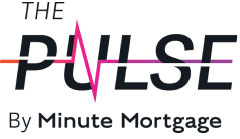6 Ways to Improve Your Credit Score Before Applying for a Mortgage
If you’re reading this, you’re likely well aware that a high credit score is very beneficial when applying for a new or refinanced mortgage. The higher the score, the better the terms. The better the terms, the more hard-earned money you save over the life of your loan.
Every point on your credit score counts when it comes to getting the most competitive mortgage rate. You’ll get the best rates on conventional loans with a credit score of 740 or higher.
Patience will be necessary if your score is currently poor. Credit scores can rapidly crash, but they take time to recover; months or even years in some cases. Following the steps below won’t give you an excellent score overnight, but they will put you on a path toward a credit score that will make any lender smile.
1. Pay Your Bills On Time, All the Time
It all starts here. Lenders need to see you’re reliable and nothing proves that more than a long history of on-time payments. Payment history makes up 35% of your FICO Score, so this is the easiest way to increase and maintain your credit score—and the quickest way to crash it if you start missing payments.
2. Pay Down Credit Card Balances
This is the second most important credit score factor after payment history. The more debt you pay down, the lower your credit utilization ratio, which is important for high credit scores.
Credit utilization ratio is the amount of outstanding credit card debt you have as a percentage of your available credit. Let’s say you have two credit cards with a combined limit of $10,000 and the combined balance of the two is $2,000. Your credit utilization ratio would be 20%, which happens to be a pretty good number to be at. Though there’s no hard rule, keeping your credit utilization ratio below 30% is helpful when applying for a mortgage.
Having a high ratio is a surefire way to hurt your credit score and make it difficult to get approved for a mortgage. However, never using your credit cards and carrying a utilization ratio of 0% can actually hurt. Because if you don’t ever use your lines of credit and pay them off each month, you aren’t actually showing that you can use and manage your lines of credit.
3. Do Not Close Any Credit Accounts
While closing an account you’ve paid off may sound harmless, or even helpful, it can actually lower your score by increasing your credit utilization ratio.
Take this example. You have two credit cards, each with a $5,000 limit, for a total credit limit of $10,000. One card has a $1,000 balance and the other has no balance. So your credit utilization ratio is 10%.
But if you close the card with no balance, your total limit is cut in half and your utilization ratio jumps to 20% despite not adding a penny of debt. It’s best to keep the account open, especially if the account has a recent history of on-time payments the lender can see.
4. Do Not Apply For New Lines of Credit
Unless advised to do so by a loan specialist, don’t go and open new lines of credit in a bid to better your credit utilization ratio. Lenders may be suspicious of why you felt the need to open new lines of credit shortly before applying for a mortgage. Plus, you score could get knocked down if a hard credit inquiry is required.
5. Build Credit With a Secured Credit Card
Do you have little or no credit history? Or do you have a poor credit score? Utilizing a secured credit card is a good way to help your credit score in both these situations.
Secured credit cards differ from traditional unsecured credit cards in that they’re backed by a deposit you make when you open the account. And that deposit is usually going to be your credit limit. So if you open a secured credit card account with a $300 deposit, $300 will likely be your limit. Then that deposit is there for the lender to take if you were to not pay your bill.
Once you’ve made that initial deposit and opened the account, it works just like an unsecured credit card and is reported to the credit bureaus as such. Since you’ll likely have a low limit, they’re best used for small purchases where you’re easily able to pay the full balance each month, thereby proving responsibility and not accruing any interest.
6. Check Your Credit Report For Errors
Mistakes happen. In fact, a study conducted by the Federal Trade Commission (FTC) showed that one in five people have an error on their credit report. Like we said, every point on your credit score counts when it comes to getting the best rates possible, so fixing any errors can lead to big savings.
Get your free annual credit report at AnnualCreditReport.com, then comb through it and make sure all information is accurate. Look for any reported credit accounts you didn’t open; reported credit applications and inquiries you did not initiate; and bankruptcies, repossessions or foreclosures erroneously tied to you.
If you do find an error, contact the credit bureau that is showing the error—TransUnion, Equifax and/or Experian—and request a correction. Be prepared to have documentation that supports your claim. You’ll also want to tell the organization that is providing the erroneous information to bureaus that you’re disputing the item in your report.


 7 Minute read
7 Minute read



